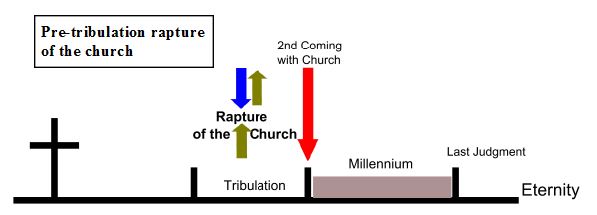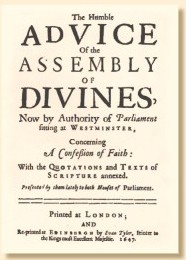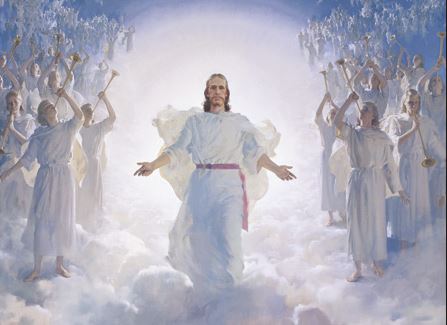 Related Articles
Related Articles
|
|
|
 Websites
Websites
|
|
|
|
|
Covenant Theology and Dispensationalism
Two contradictory and competing 'systematic theologies' have been, and remain very influential in shaping Christian belief and action.
 Note: The 'response' facility relating to this article is available to (logged on) site members only. Note: The 'response' facility relating to this article is available to (logged on) site members only.
Preface
The following article is a modified extract from an earlier article entitled 'A Covenant-keeping God'. The piece, which contains an overview of the major Biblical covenants, is itself part of a 'Drilling Down' series of articles (a 'work in progress').
-----------------------
Foreword:
Theological constructs;
frameworks of interpretation
(aka Systematic Theology)
REGARDING interpretational systems and frameworks or – to use the fancy term – hermeneutics, it is important to note the distinction between terms which are ‘theological’ and those which are ‘biblical’. Theological terms need to be treated with great caution.
Whilst these might be convenient in the discussion of key biblical themes and concepts (e.g. the term ‘Trinity’ as used in reference to the triune Godhead) these are essentially – in the grand sweep of history – neologisms.
They are essentially religious rather than biblical terms or, to use another word, ‘inventions’. They are often lacking clear definition and, across the Christian spectrum, experience differing levels of (dis)agreement and common understanding.
An example is the word ‘sacrament’. It is not found in the Bible and theologians have differed regarding the precise nature of a ‘sacrament’ and also what is (and isn’t ) covered by the term. (See New World Encyclopedia on the subject.) And the different opinions are not confined to the clichéd Roman Catholic/Protestant divisions. The Reformers Luther and Zwingli were famously in disagreement over Communion.
It is also important to differentiate between inductive learning and deductive reasoning. The former derives a view directly from (out of and formed by) the Bible text (exegesis): the latter is arrived at by a process of logic. For instance (and only for the sake of illustration) if it is held that God predestines some to salvation, then logic should dictate that God must, by extension, predestine some to a lost eternity. The use of logic can produce doctrines that are arrived at by eisegesis (reading into a Bible text from a particular and pre-suppositional theological framework).
Clever murder mysteries use 'deduction' to lead the reader or viewer on a false trail and to suspect the wrong person of the crime. (But of course Hercule Poirot's incisive and 'out-of-the-box' thinking shames the logic of we armchair sleuths every time.)
This is not to detract from the benefits of Systematic Theology which (in plainer language) is merely a themed approach to Bible study, but rather to highlight that theological suppositions should never be placed on a par with or, infinitely worse still, sit above the Word of God.
------------
Introduction
Two major theological systems -
(which contradict each other whilst also failing the Berean test: Acts 17:10-11).
 Caveat: Whilst focusing on particular interpretations, this is an 'equal opportunities' document in that it offers scope for a variety of opinions right across the theological spectrum. Caveat: Whilst focusing on particular interpretations, this is an 'equal opportunities' document in that it offers scope for a variety of opinions right across the theological spectrum.
In the Christian community across the world there are a variety of theological positions. However two of these have gained widespread support and – whilst disagreeing with one another – have both been highly influential in the formulation of belief. And it is important to stress again that these are theological constructs. The earliest of the two has been termed ‘Covenant Theology’ (mainly formulated and codified in the 17th century; see Footnote): the other being ‘Dispensationalism’ (with its origins in the 19th century).
The former is a central plank within Presbyterian churches around the world and across the (Presbyterian) denominational spectrum. The latter originated in the UK (pioneered by those within what became the Plymouth Brethren), but crossed the Atlantic to become hugely influential in the late 19th century. Dispensationalism informed the belief of the pentecostal churches at the start of the 20th century and has, since then, expanded both denominationally and geographically.
Covenant Theology

Covenant Theology (CT) developed two principal terms to describe its dual covenant interpretational framework viz. a Covenant of Works and a Covenant of Grace. (Some argue that there is only one covenant – the Covenant of Grace. Others include a Covenant of Redemption between the Father and the Son.) These theological terms have been employed to develop a whole range of doctrines and, because of the influence that they have had, we will (d.v.) come back to these later in more detail.
However, for the moment, and with reference to the most common 'dual-covenant' view – developed first by Dudley Fenner, an English Puritan, in 1585; and then Scottish theologian Robert Rollock (1555 - 1598) – it is sufficient to say that the (theological) Covenant of Works is used to denote the period prior to the Fall in the Garden of Eden. In simple terms the Covenant of Works would say: “If Adam and Eve had obeyed the instructions given to them then they would have been OK. “ However Adam and Eve didn’t, so God had to embark on Plan B – the Covenant of Grace.”
This term – again simply speaking, but remembering that it is a theological expression, not a biblical, one – covers the continuous period from the Fall until the final consummation and Kingdom come.
However this span of time is (it is argued) should be split into two ‘administrations’ (again a non-biblical term); basically delineated by the Old Testament (OT) and the New Testament (NT) periods. In these two ‘administrations’ (it is said) God applied the same principles but in two different situations and in two different ways to the one people of God. These were Israelites in the OT and believers (Gentile and Jewish) in NT times.
Whilst this is a convenient hermeneutic, it is not biblical. The nation of Israel was in effect a theocracy within which some were in communion with God (cf Heb. 11) while others very obviously, were not. In contrast the church (in the true sense of the bride of Christ) comprises solely of people in blood-bought communion with God.
So 'OT Israel = OT expression of church' is both overly-simplistic and grossly misleading . As a corollary, 'Church = Israel' is also untrue. (More on this below.) But as Covenant Theology has been widely accepted as ‘biblical’ it has led directly to (for instance) infant baptism. Accordingly paedobaptism is claimed to be the NT equivalent of circumcision – even though circumcision was never the symbol of salvation and union with God; and was only ever applied to males. [Again, more on this at later date (d.v.) when looking at 'Who are Abraham's seed?']
One of the other principal, and even more serious, mistakes deriving from Covenant Theology has led to what is commonly called ‘Replacement Theology’. This ‘theology’ – also termed Supercessionism – teaches that the Jews have now been ‘replaced’ by the mainly-Gentile church and (therefore, by deduction and logic) the promises to the Jews have now either all been fulfilled or spiritualised; or will find any contemporary or future fulfillment in the church. (So for instance many older Bibles have chapter headings for Isaiah 59 as “God’s curses on the Jews” and Isaiah 60 as “God’s blessings on the Church”.)
The ‘replacement’ view is most emphatically rejected by Paul in his letter to the (Jewish and Gentile) church at Rome. In fact this is his core message (Rom 11:1-2; 11-12) and the underlying reason for writing this – his longest – letter.
Dispensationalism

In contrast to Covenant Theology the other system of interpretation that has attracted widespread support is that of Dispensationalism.
There is a view that Dispensationalism (as distinct from, but embracing pre-millennialism) has its genesis in a Scottish believer (Margaret Macdonald; 1815-1840) and a Church of Scotland minister (Rev. Edward Irving; 1792-1834). What is undisputed is the fact the John Nelson Darby (founder of the Plymouth Brethren as a distinct grouping with its roots in the wider Brethren movement) is the latter-day father of this theological system. Darby took his pre-tribulation rapture teachings (the removal of believers from the earth prior to the return of Christ and before the ‘great tribulation’ of Matt. 24) to America where they were enthusiastically embraced by a lawyer called Cyrus I. Scofield (1843-1921).
Scofield in turn produced the Scofield Reference Bible (first published 1909) which is annotated throughout in support of Darby’s interpretations – especially with reference to eschatology, the end-time prophecies and events regarding Christ’s return. The Scofield Bible has been hugely influential right through to the present day – in America and right around the world. The teachings are now being propagated through the Moody Bible Institute in Chicago, Dallas Theological Seminary, and more than 200 other lesser-known Bible institutes..
Dispensationalism divides history into sections, covering the periods of Innocence, Conscience, Civil Government, the Patriarchs, the Law, Grace (the church age), the Millennium and the final consummation leading to the everlasting kingdom. However, and perhaps because this theological system lacks biblical warrant, there is a range of opinions (disagreement) on how many dispensations there are (varying from three to eight) and where, in history and in Scripture, the dividing lines lie.
But irrespective of the number of dispensations, the agreed assumption is that God has dealt differently with his world and its people in each of these different dispensations. Accordingly then, a different hermeneutic needs to be applied to the different portions of Scripture which cover these different periods of time.
What is also generally agreed is that the church age is a parenthesis – a defined interlude – in God’s overall plan of salvation i.e. in the OT God is dealing through the Jews while the NT is the time of the Gentile church until Jesus’s rapture of the saints (with a pre/post/mid-Tribulation rapture range of views) . This will usher in a further period of God again dealing with and through the Jews.
Dispensational teaching has been greatly popularised and adopted through hugely-influential and best-selling books like Hal Lindsey’s ‘The Late Great Planet Earth’ (1970) and the ‘Left Behind’ series of novels by Tim LaHaye. The Left Behind books – the first in the series appeared in 1995 – have sold over 50 million copies, and have been turned into a cinema production. The books are freely available from and often prominently displayed in Christian bookshops.
As stated earlier, the core element of these novels is the ‘pre-tribulation rapture’ which, as already stated, teaches that all Christians will be suddenly and without any warning removed from the earth prior to the return of Christ. (See Footnotes.) However, and apart from the wider Christian community, even within the Brethren camp there was disagreement. George Mueller (of Bristol Orphanage fame) broke with Darby over this issue. The great Baptist preacher C.H. Spurgeon also declared the teaching to be unscriptural. Nevertheless the doctrine has persisted.
In summation...
Both Covenant Theology and Dispensationalism have been and continue to be highly influential in formulating Christian belief, but both are disputed.
Covenant Theology dismisses swathes of end-time prophecy as irrelevant or allegorical, and sees no place in God’s final purposes for the Jews other than (perhaps) a final ingathering as outlined in Romans. In terms of latter-day expectations prior to the return of Jesus, the former implicitly teaches a universally positive response to the Gospel (reading more into Matt. 24:14 than the verse allows; cf Matt 7:14).
Meanwhile, though recognising the prophesied 'time of great trouble' (Dan 12:1; Matt 24; 2 Tim. 3:1-12), Dispensationalism (in pre-tribulation rapture form), teaches that believers will be spirited away, leaving the Jews to face the music of Satan’s final onslaught. (See Footnotes.)
So while the Gentile believers look down from a safe vantage point in heaven (as God's 'heavenly people'), the Jews will be God's latter-day 'earthly people' who will suffer greatly but endure through the Great Tribulation. Within the Dispensationalist view, Matthew 24 (et al) and, for some, Revelation chapters 4 - 19 are seen as only of academic interest – given the belief that the Gentile saints will be in heaven during that period.
Regarding God’s end-time purposes for the Jews, Dispensational Theology cannot get the church and Israel together, whereas Covenant Theology cannot get the church and Israel apart. The former sees the Jews and the church as totally different entities separated by ethnicity and end-time progression, whereas the latter see Israel and the Jews as essentially an earlier expression of the church, differentiated only by two separate and distinct ‘administrations’ of time (OT/NT) in God’s grace. In fact Israel was/is a physical nation comprising the saved and the lost (Rom 9:7), whereas followers of Christ are a spiritual nation made up exclusively of the redeemed (Gal 3:7,8; 1 Pet 2:9).
At the very least it can be confidently stated that because these two systems disagree markedly with one another, they cannot both be completely right. (And it could be argued that in critical issues they are both wrong.) Yet both of these systems have created expectations and assumptions which could leave believers scripturally askew; vulnerable through false hopes; and ill-prepared to understand the times and the purposes of God in our day as the cosmic upheavals preceding Kingdom Come drawn ever nearer.
At the risk of vain repetition, the theological systems of Covenant Theology and Dispensationalism lack Biblical support in major areas of doctrine, theology and eschatology. Moreover they profoundly disagree with each other on very significant points – especially concerning the times preceding the coming again of Christ; the place of, and God’s purposes for the Jewish people; and the establishment of His everlasting kingdom.
Footnotes:
1. Pre-Tribulation Rapture of the church as taught by most Dispensationalists. The view held is that Christ will have two comings: the first will be invisible 'for the saints' and the second 'with the saints'.

-------------------
 2. The Westminister Confession of Faith (1644) codifies much of what is described as 'Calvinism' and is subscribed to as a 'Subordinate Standard' by Presbyterian denominations worldwide. 2. The Westminister Confession of Faith (1644) codifies much of what is described as 'Calvinism' and is subscribed to as a 'Subordinate Standard' by Presbyterian denominations worldwide.
The document is predicated on so-called 'Covenant Theology' and contains material which is, in the broad sweep of the formulation Biblical, extra-biblical, and unbiblical representing Truth mixed with error.
It is also deficient in failing to cover some some major biblical themes: making bare mention of the person and role of the Holy Spirit, and with no mention of the Great Commission.
3. The Millennium
 Broadly speaking Reformed (Covenant) theology teaches the Millennium as being a definite period prior to the coming again of Christ at the end of the age. However, the early church believed in a literal Millennial reign of Christ on earth. Broadly speaking Reformed (Covenant) theology teaches the Millennium as being a definite period prior to the coming again of Christ at the end of the age. However, the early church believed in a literal Millennial reign of Christ on earth.
While many today share this latter view, not all who do are Dispensationlists (i.e. all Dispensationlists are pre-millennial but not all Pre-Millennialists adhere to Dispensationalism). See article The (Coming) Millennium by a Scottish lay preacher and city mission superintendent. |
The Editor, 30/07/2013
|
(page
1
2
3
4
5
6
7
8
9
10
11
12
13)
| |
|
John Miller |
02/08/2013 17:04 |
I invite others to answer the question that I asked Colin at the end of my last post.
I agree with the Editor's observation about the global context of the latter part of the Lord's prophetic statement BUT please note that He is referring to the setting up of His earthly kingdom here on earth. Where is that kingdom to be physically centred. Whence will His universal government proceed?
It will be centred in Israel, in Jerusalem to be precise. He will sit on the throne of His glory in David's city and will rule the world from David's throne. I presume that no serious Bible loving student of God's word will dispute this.
Seumas, the words that you quote were uttered by the Creator. His power is without any qualification or limitation. He has already interfered with His own creatorial arrangements as is His right and according to these words will do so again.
Your interpretation of the passage is based on the limitations of human perception. I do not believe that this passage is metaphorical, allegorical or symbolic anymore than I believe that about God preparing a great fish to swallow Jonah.
|
| |
|
Colin Ford (Guest) |
02/08/2013 17:52 |
John,
Matthew 24? Can I ask you? The warnings contained within this chapter; are they for the Church or Israel? The Lord's disciples, did He address them as members of His Church, or as unbelieving Jews/Israel?
We are agreed that the Saviour WILL be setting up His LITERAL kingdom on this earth, according to the OT prophets.
Certainly, I heartily agree with your reply to Seumas!
|
| |
|
Colin Ford (Guest) |
02/08/2013 18:32 |
John,
You asked when do I think "the dead in Christ will be raised"?
God teaches us in 1 Corinthians 15.23 that the departed saints are to be raised at Christ's coming: "They that are Christ's at His coming". In Revelation 20.5-6, we are told of a resurrection that is called in Scripture the FIRST resurrection. If this is the first resurrection, how can there be a resurrection seven years or more before it?
This FIRST resurrection INCLUDES those that have suffered under Antichrist, it proves then that the FIRST resurrection comes AFTER the tribulation, and that there is none before it?
|
| |
|
Dale (Guest) |
03/08/2013 13:59 |
I tend to side with Seumas in his interpretation of Matt 24:29. The language used is apocalyptic and figurative. Similar language is used in the OT passages like Isa 13:10 and Ezekiel 32:7,8 where the prophets are predicting disasters upon Babylon and Idumea respectively. If the Holy Spirit speaking through the prophets uses such figurative language to describe the downfalls of heathen nations like Babylon and Idumea, how much more would not such language fit the downfall of the city of Jerusalem in AD70?
|
| |
|
Dale (Guest) |
03/08/2013 14:24 |
Apologies! Correction required - Ezekiel 32:7-8 is predicting judgment on Egypt. Idumea or Edom is mentioned using similar language in Isa 34:4-5.
|
| |
|
Ethel Hannigan (Guest) |
03/08/2013 14:37 |
John - has science got anything right in your opinion? Or is human perception too weak to understand anything of significance - like how to get to the moon or understand light source?
|
| |
|
Editor |
03/08/2013 17:16 |
Ethel, If you have just joined this discussion perhaps I could mention that this article and thread is about what the Bible says and not about science. In this context further posts about 'science' will be deleted.
|
| |
|
Colin Ford (Guest) |
03/08/2013 19:58 |
The Old Testament prophets; Isaiah 13.10, Ezekiel 32.7, Joel 2.31 are speaking of a yet future event (I could mention many more, but these hopefully will suffice). Although the Ezekiel 32.7 Scripture would have had a primary fulfillment as Dale alludes to above; (Editor calls this "twin peaks"). Isaiah 13.6 speaks of "the Day of the Lord; which obviously leads into Isaiah 13.10, and of course Joel 2.31 speaks of the "Day of the Lord, and I would assume these Scriptures speak/prophesy of a yet still future event? No believer would dispute this?
Now regarding the fall of Jerusalem in AD 70, we have to ask ourselves regarding Matthew 24.29 that if this very Scripture were fulfilled in AD 70, what about the very next verse; Matthew 24.30? Did this great event happen 2000 years ago? Was the "sign of the Son of Man" seen in heaven? Did He then come in "power and great glory"? What are we to make of all of this??
|
| |
|
Seumas (Guest) |
04/08/2013 08:50 |
Quote "this article and thread is about what the Bible says and not about science"
Excuse me? That is little more than anti-intellectual obscurantism predicated with a threat of censorship.
I drew attention to an eschatological text and argued it must be metaphorical rather than literal, based on our understanding of the universe.
Or are we back in the dark ages of Galilean persecution? No wonder evangelicals get ridiculed.
|
| |
|
Editor |
04/08/2013 10:41 |
"That is little more than anti-intellectual obscurantism predicated with a threat of censorship."
For the benefit of all who may be reading this thread and wishing to post on this site, just a few points.
1. The site is called 'Christians Together' and not 'Scientists Together'; and the term 'Christian' means those who hold the Word of God as supreme over anything which science or intellectualism claim as a superior understanding. (Scientists have raged against God for millennia, but invariably - in any contest - science is proved wrong: just give it time.)
2. Accordingly any postings which are primarly aimed to discuss science are better placed on the many other sites which cater for those with that specific interest. (And postings which - as a basis for argument - veer away from the Word of God, will be deleted. This is not a threat it is a statement of intent.)
3. Finally, and most importantly, I will (exceptionally) post (below) a lengthy passage from God's Word. (I usually just give the references).
But first of all just a few verses is summary -
"For my thoughts are not your thoughts, neither are your ways my ways," declares the LORD.
"As the heavens are higher than the earth, so are my ways higher than your ways and my thoughts than your thoughts." (Isaiah 55:8-9)
"Have you journeyed to the springs of the sea or walked in the recesses of the deep?
Have the gates of death been shown to you? Have you seen the gates of the shadow of death?
Have you comprehended the vast expanses of the earth? Tell me, if you know all this. (Job 38:16-18)
Now for the lengthier passages (for the full text read Job chs. 37 - 41; if anyone dare).
Job 38:2-13
2 "Who is this that darkens my counsel with words without knowledge?
3 Brace yourself like a man; I will question you, and you shall answer me.
4 "Where were you when I laid the earth's foundation? Tell me, if you understand.
5 Who marked off its dimensions? Surely you know! Who stretched a measuring line across it?
6 On what were its footings set, or who laid its cornerstone—
7 while the morning stars sang together and all the angels shouted for joy?
8 "Who shut up the sea behind doors when it burst forth from the womb,
9 when I made the clouds its garment and wrapped it in thick darkness,
10 when I fixed limits for it and set its doors and bars in place,
11 when I said, 'This far you may come and no farther; here is where your proud waves halt'?
12 "Have you ever given orders to the morning, or shown the dawn its place,
13 that it might take the earth by the edges and shake the wicked out of it?
Job 40:1-7
1 The LORD said to Job:
2 "Will the one who contends with the Almighty correct him? Let him who accuses God answer him!"
3 Then Job answered the LORD:
4 "I am unworthy — how can I reply to you? I put my hand over my mouth.
5 I spoke once, but I have no answer — twice, but I will say no more."
6 Then the LORD spoke to Job out of the storm:
7 "Brace yourself like a man; I will question you, and you shall answer me.
Now, having read a bit about what God thinks of man's arrogance, let us get back to discussing what He thinks on the subject of the article to which this thread refers.
|
(page
1
2
3
4
5
6
7
8
9
10
11
12
13)
|
|
|